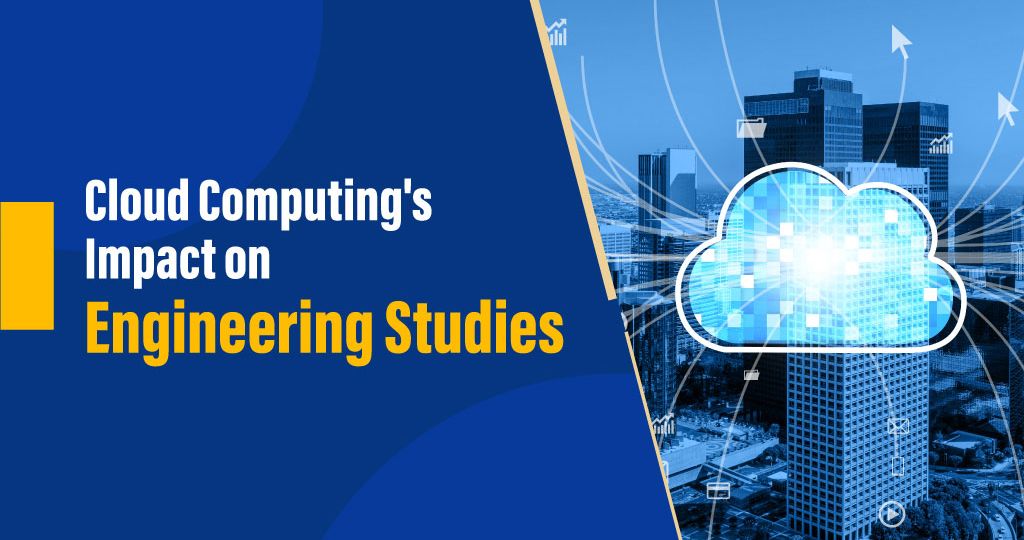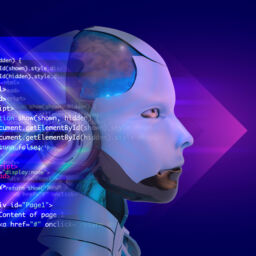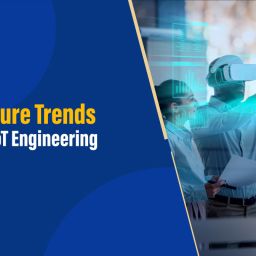
Today, businesses are starting to use the power of cloud computing, from product development to cloud-enabled remote work, and collaboration is getting easier. Cloud computing has made a continuous revolution in the field of software development, where there are increasing numbers of serverless computers, which has proven the evolving technology landscape. The concept of cloud computing may get into its details when you pursue a computer science course in the B-Tech IT colleges in Tamil Nadu. However, in this article, you can get a glimpse of how cloud computing transforms the engineering field.
Cloud computing: What do you know about it?
Cloud computing offers computing services that include servers, databases, software, and analytics. Individuals can store and access their data remotely from anywhere with just an internet connection. The cloud consists of a mass network of servers that are spread across multiple data centres to deliver the services. The benefits of cloud computing are:
- It helps to meet changing demands with cloud computing resources.
- It is a cost-effective solution for all business sizes.
- It offers backup services and disaster recovery, which ensure your data is available.
- It helps protect against unauthorized access and cyber threats. Thus, organizations can invest in cloud computing security.
Cloud computing engineering applications:
- Cloud computing establishes new possibilities for complex simulation and modeling. The significant advantage of the cloud is its ability to provide scalable computational power. With cloud services, users can access and pay precisely, which makes it easier to manage problems. Some of the cloud services are Amazon Web Services, Microsoft Azure, and GCP.
- The cloud allows you to collaborate with teams seamlessly, even if they work on projects remotely. Engineers can access their simulations at any location and can work together in real-time across global clients. This improves efficiency and promotes knowledge sharing and innovation.
- Cloud-based resources are easy to set up and reduce the setup time for simulations. With virtual machines and pre-configured environments, users can avoid the long process of setting up hardware and installing software manually. This process enables the users to focus on their work rather than setting up infrastructure.
- The Internet of Things is shifting the way we collect and utilize data, where the technology is powerful because of the integration of cloud computing. What does it provide? Centralization of data is the advantage, which means when IoT devices generate a vast amount of data, it is easy to centralize and process data with cloud service platforms. This is the backbone of many IoT systems, which make it easy to handle data from devices.
- Cloud storage is another option where today’s businesses and individuals make use of these tools. The data storage solutions and advanced analytics enable the firms to store data securely and gain valuable insights. Engineers can make use of machine learning and artificial intelligence to forecast trends and make data-driven decisions.
- Cloud computing provides better opportunities for processing and storing data. However, for low latency, devices using edge computing can generate data quickly and require less time to travel back to the cloud. Therefore, devices such as IoT gateways and local servers can process the data in real time.
- Edge computing offers decentralized data processing, which reduces the pressure on central cloud servers. It indicates that the interaction of IoT, cloud computing, and edge computing transforms engineering applications from smart cities to automation.
Cloud computing impacts the way an individual learns engineering.
- Say goodbye to expensive books. University-level textbooks are expensive now, but acquiring them virtually reduces the amount spent on textbooks. Cloud-based textbooks resolve this issue, and digital content is significantly less expensive than printed content.
- No more outdated learning materials: Cloud-based materials are easy to update in real-time, so students have access to the learning resources that are available within their budget, so there is no worry about affording to replace the outdated resources.
- No expensive hardware: Cloud-based applications can be run on internet browsers, which are more compatible with mobile devices as well. Students don’t need to purchase external storage devices, as there are companies like Google that offer free cloud-based storage.
- No expensive software is required. There are now various software programmes that are available for either free or low-cost subscriptions. Now students can take advantage of cloud-based computing, which is a software-as-a-service model.
- Remote learning: Cloud-based applications provide an opportunity for studying that can connect with the virtual classroom anytime, anywhere, and with any device. This makes it easier for students to keep up with the progress of the class.
There are various advantages acquired from cloud computing. However, there are challenges where future generations need to improvise in certain areas like data security, cost management, compliance, and regulations. The best B-Tech colleges in Coimbatore promote the concepts of evolving technology, which has its own trends in shaping the future of engineering in the cloud. Some are serverless computing, integration of AI, quantum computing, edge computing, and sustainable cloud engineering. These innovations imply that when businesses need to stay competitive, then adopting cloud solutions is a primary requirement.









